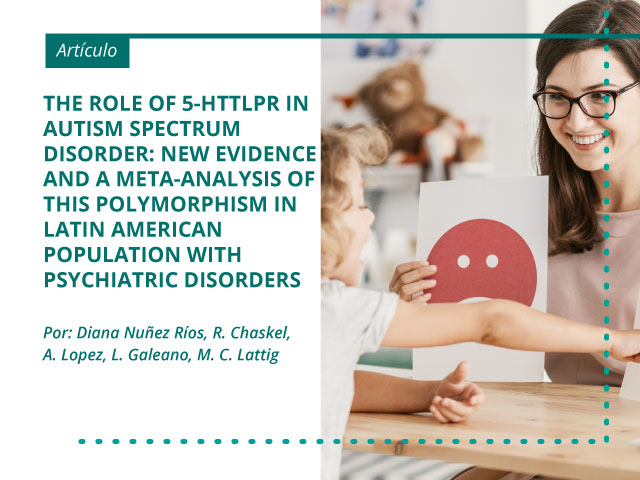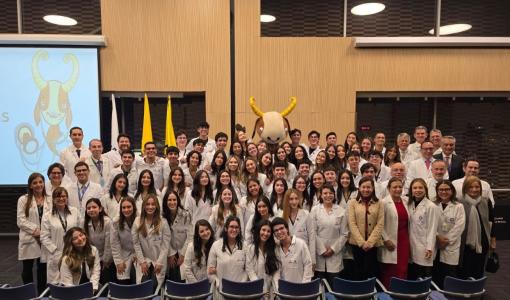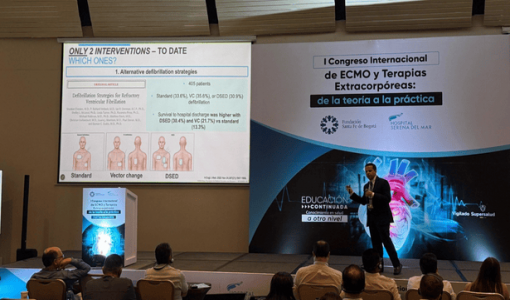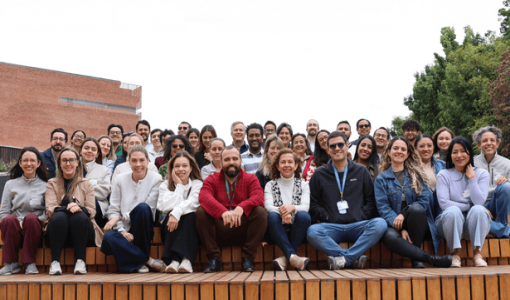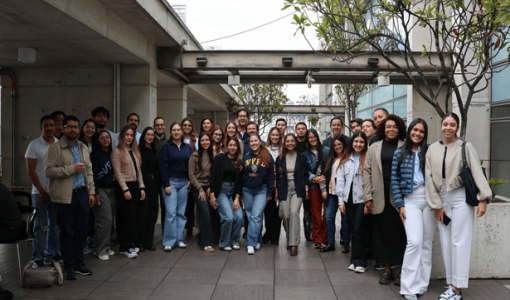Los invitamos a consultar este artículo titulado "The role of 5-HTTLPR in autism spectrum disorder: New evidence and a meta-analysis of this polymorphism in Latin American population with psychiatric disorders".
Esta publicación cuenta con la participación de Diana Nuñes Rios del Departamento de Ciencias Biolo´gicas, Universidad de los Andes, Bogotá, Colombia y profesionales del Instituto Colombiano del Sistema Nervioso Clínica Monserrat, Fundación Santa Fe de Bogotá y Servicios Integrales en Genética (SIGEN) en alianza Fundación Santa Fe de Bogotá.
Abstract
The autism spectrum disorder (ASD) is a complex disorder encompassing a broad phenotypic and genotypic variability. The short (S)/long (L) 5-HTTLPR polymorphism has a functional role in the regulation of extracellular serotonin levels and both alleles have been associated to ASD. Most studies including European, American, and Asian populations have suggested an ethnical heterogeneity of this polymorphism; however, the short/long frequencies from Latin American population have been under-studied in recent meta-analysis. Here, we evaluated the 5-HTTLPR polymorphism in Colombian individuals with idiopathic ASD and reported a non-preferential S or L transmission and a non-association with ASD risk or symptom severity. Moreover, to recognize the allelic frequencies of an under-represented population we also recovered genetic studies from Latin American individuals and compared these frequencies with frequencies from other ethnicities. Results from metaanalysis suggest that short/long frequencies in Latin American are similar to those reported in Caucasian population but different to African and Asian regions.

